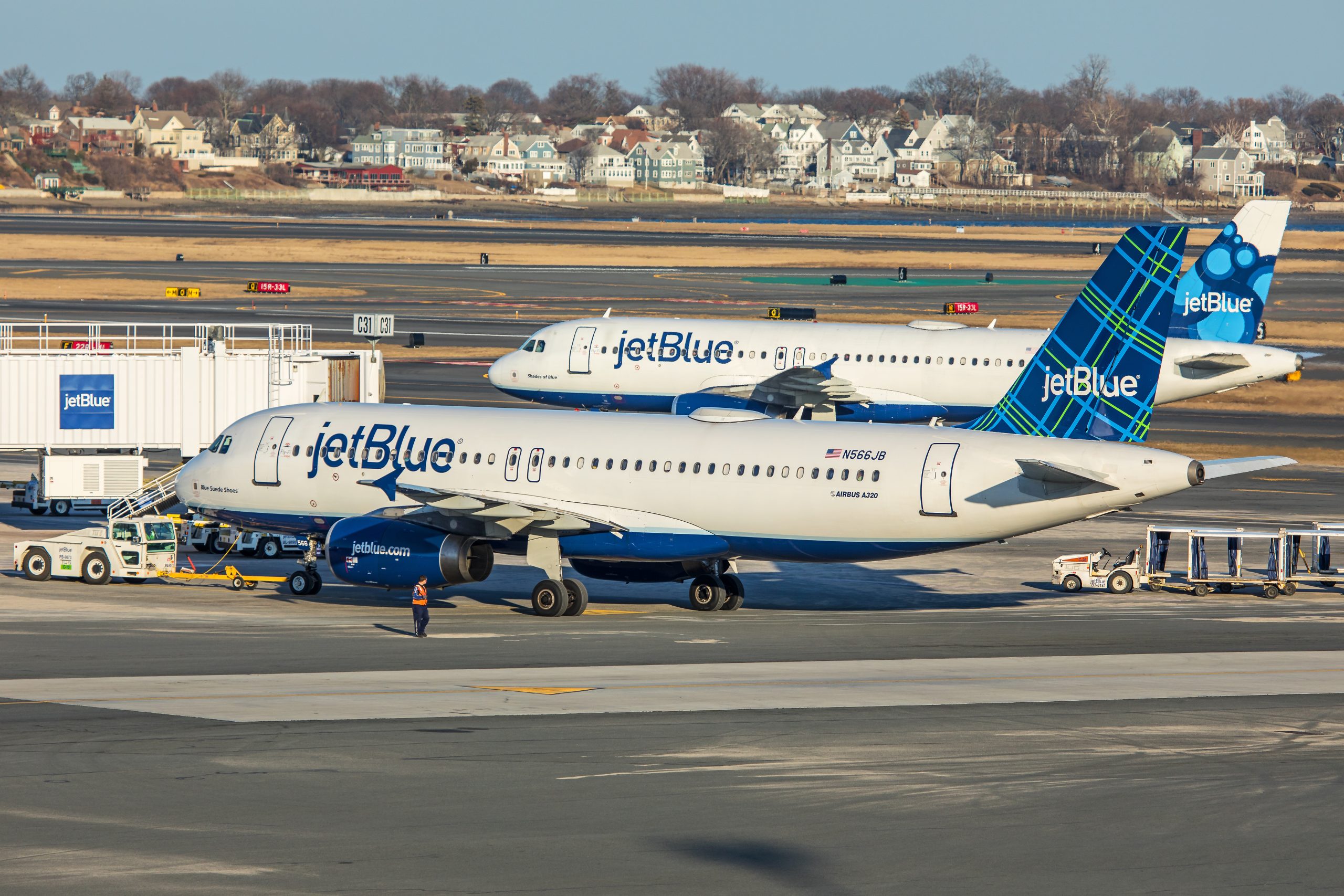
JetBlue Reveals Diminished First Quarter Earnings
On Tuesday, JetBlue announced that it has adjusted its annual revenue forecast. The carrier announced that its revenue will be…

A mock-up of how a potential hydrogen-powered engine testbed could look on the Airbus A380. (Photo: Airbus)
A few days ago, Airbus UpNext, entered into a partnership with CERN, the world’s largest particle physics laboratory (located in Geneva, Switzerland) to carry out a research project to evaluate how superconductivity can contribute to the decarbonization of future aviation systems.
Airbus UpNext is a branch of Airbus that explores innovative technologies, identifying future trends in the aerospace industry by developing working prototypes for emerging aerospace technologies. Various innovative projects include VERTEX, eXtra Performance Wing, Blue Condor, and ASCEND. In particular, the latter (an acronym for Advanced superconducting and Cryogenic Experimental powertraiN Demonstrator), initiated by Airbus in 2021, is a demonstrator that aims to mature electric propulsion technologies, through the use of a cold source, in the form of liquid hydrogen, together with superconducting technologies to significantly increase the performance of electric and hybrid propulsion systems in the near future.
CERN (Conseil Européen pour la Recherche Nucléaire) is a center that conducts world-class research on fundamental physics, uniting scientists from around the world to push the frontiers of science and technology to create opportunities for technology and know-how transfer.
The collaboration announced between Airbus Upnext and CERN serves to further evaluate superconductivity in the aerospace field and how it can contribute to the decarbonization of future aircraft. The goal is the creation of a demonstrator called Super-Conductor for Aviation with Low Emissions (SCALE) suitable to promote the adoption of superconductivity technologies in aircraft electrical distribution systems.
This technology will exploit the phenomenon of “superconductivity,” which is the ability of certain materials to generate strong magnetic fields and conduct very high electric currents with virtually zero resistance when exposed to very low temperatures (about -250 °C).
The SCALE project, which will then be integrated inside an aircraft, aims to develop and test under laboratory conditions by 2025 an optimized superconducting cryogenic thruster of about 500 kW, powered via a DC connection (cable and cryostat) with a cryogenic superconducting system with a liquid helium cooling system.
This agreement now makes it possible to combine the knowledge gained from the Airbus ASCEND demonstrator with CERN’s scientific capabilities in the field of superconductors, bringing together physicists and engineers from both parties involved, representing a joint European effort to decarbonize civil aviation. SCALE will be designed, built and tested by CERN using Airbus UpNext specifications, and first results are expected by the end of 2023.
The problem that the entire aviation industry is trying to solve is related to current electrical systems that cannot meet the necessary power requirements without adding weight to the aircraft. The study of superconduction could be a promising solution to this technical problem.
Airbus also recently announced at the Airbus Summit 2022 on Nov. 30-Dec. 1 the development of its own hydrogen-powered, zero-emission fuel cell engine. The propulsion system is seen as one of the potential solutions to equip its zero-emission aircraft that will enter service by 2035.
Airbus will begin ground testing of this fuel cell engine architecture. Then, presumably starting in 2025, it will begin testing aboard its ZEROe demonstrator aircraft, an A380 MSN1 specially modified to carry liquid hydrogen tanks and related delivery systems.
Vincenzo graduated in 2019 in Mechanical Engineering with an aeronautical curriculum, focusing his thesis on Human Factors in aircraft maintenance. In 2022 he pursued his master's degree in Aerospace Engineering at the University of Palermo, Italy. He combines his journalistic activities with his work as a Reliability Engineer at Zetalab.
Receive a daily dose of the airline industry's top stories along with market insights right in your inbox.

On Tuesday, JetBlue announced that it has adjusted its annual revenue forecast. The carrier announced that its revenue will be…

Royal Air Maroc and Safran have deepened their collaboration in aircraft engine maintenance. In celebration of its 25th anniversary, Safran…

The importance of the North American market to Fiji Airways has been further highlighted with the announcement of an interline…



